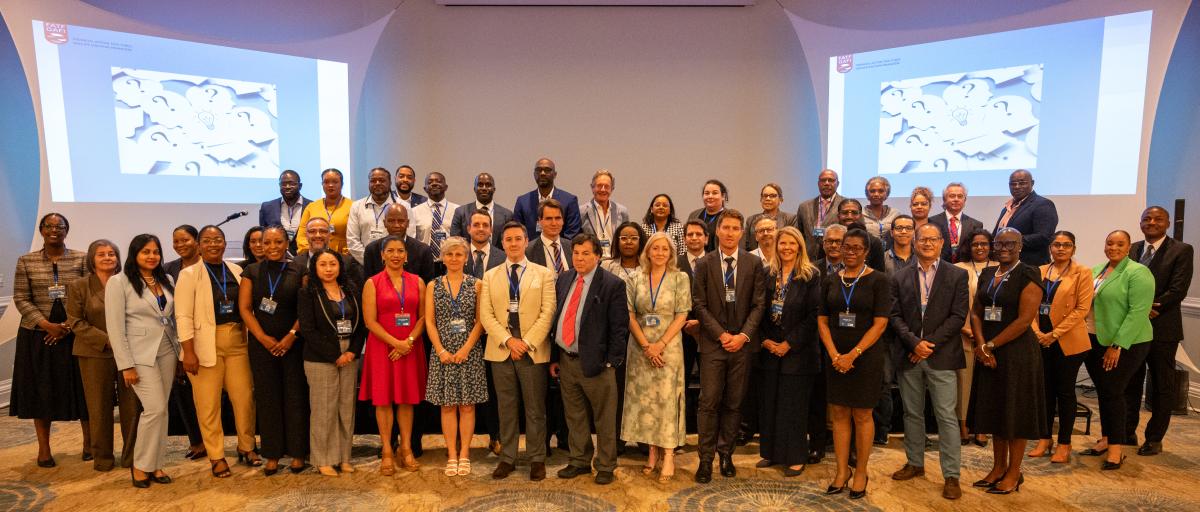The International Federation of Accountants (IFAC) convened the inaugural meeting of the Global Investor Group (GIG) in Tokyo on October 20, 2025, bringing together senior leaders from the investor community, the global accountancy profession, regulators, and capital market institutions. IFAC’s GIG aims to foster open and ongoing dialogue between the profession and investors to ensure assurance remains trusted, relevant, and aligned with the evolving needs of capital markets.
The first meeting was graciously hosted by the Japanese Institute of Certified Public Accountants (JICPA) and held with the support of Norges Bank Investment Management (NBIM), the Japan Exchange Group (JPX)/Tokyo Stock Exchange, and under the endorsement of the Japanese Financial Services Agency (JFSA) as part of Japan Weeks 2025.
Naruhito Minami, Chair and President of the JICPA said in his welcome address: “Dialogue between investors and auditors is not just about information exchange — it is about strengthening trust, improving audit quality, and enhancing transparency. At JICPA, we believe that providing reliable sustainability information is essential for investors to evaluate a company's long-term value creation. Consequently, the roles of auditors and the scope of dialogue between investors and auditors are expanding.”
“Today’s discussions confirmed why the Global Investor Group GIG matters — the profession and investors share the same ultimate goal: trustworthy, relevant information that supports sound decision-making,” said Lee White, IFAC Chief Executive Officer. “GIG is about creating a trusted space for real dialogue between investors and the accountancy profession — open, honest, and focused on solutions. By aligning investor needs and market priorities, we can help close the expectation gap with assurance and strengthen the trust and transparency that global markets depend on.”
This was echoed by Koji Watanabe, Director of the Listing Department, Tokyo Stock Exchange, Inc. (TSE), who added “Exchanges, regulators, auditors, and companies all share the responsibility to provide information that is accurate, timely, and useful. The Global Investor Group is a timely initiative. By working together, we can make audit reports more useful, connect sustainability information to financial statements, and build stronger partnerships in our markets. I hope today’s discussion will start a stronger partnership between investors and auditors, and help strengthen capital markets worldwide.”
The Chief Accountant, Director for International Accounting of the JFSA, Koichiro Kuramochi noted: “Hosting such international dialogue here in Japan is not only timely, but also essential to deepening mutual understanding and collaboration with global market participants. The Japan FSA places great importance on engaging with overseas investors and stakeholders in the capital markets. We are committed to strengthening these communications further, and today’s meeting marks a significant step forward in that direction. We hope that it will serve as a foundation for future collaboration between investors and the accounting profession.”
Jeanne Stampe, Lead Policy Advisor, Active Ownership at Norges Bank Investment Management concluded: “In an increasingly complex investment landscape, audit reports provide investors with critical insights into the judgments and assumptions underlying financial results. Alignment between investors and the auditor community will empower investors to engage effectively with board audit committees. The GIG can facilitate constructive dialogue on enhancing how audit findings reach investors, ultimately strengthening governance and supporting better capital allocation decisions.”
The meeting focused on how to help bridge the assurance expectation gap—the difference between what investors expect from assurance and what the profession delivers or is perceived to deliver. Through a structured roundtable held under the Chatham House Rule, participants explored critical questions about the role of assurance in enhancing trust, especially regarding:
- The connectivity between sustainability-related and financial information and their assurance,
- Audit scope, Key Audit Matters and independence,
- Engagement with audit committees, and
- Transparency in auditor communications.
The GIG’s primary objective is to serve as a trusted, informal forum where investors and assurance providers can engage openly.
In terms of next steps, input from this inaugural meeting will help shape the Terms of Reference of the GIG and its 2026 workplan, and ensure the GIG remains responsive to both investor priorities and market developments.
About IFAC
IFAC, by connecting and uniting its members, makes the accountancy profession truly global.
IFAC member organizations are champions of integrity and professional quality, and proudly carry their membership as a badge of international recognition.
IFAC and its members work together to shape the future of the profession through learning, innovation, a collective voice, and commitment to the public interest.


